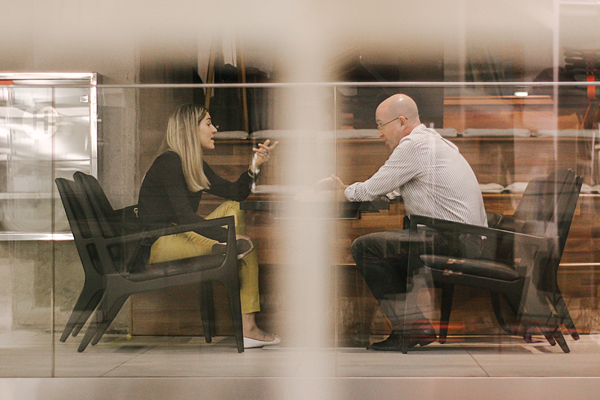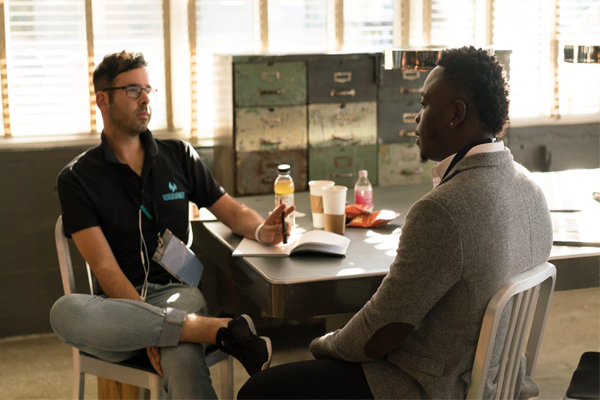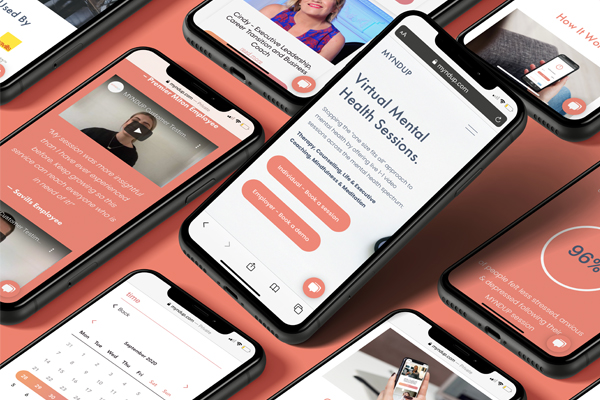In this week’s guest column, Joel Gujral, Founder & CEO of MYNDUP, explains why a ‘one-size-fits-all’ approach to workplace mental health will not work.
During Mental Health Awareness Week in the UK, Gujral explains why organisations should consider more personalised support to help staff struggling with mental health issues.
Mental health and wellbeing are becoming increasingly important in the workplace, particularly in the current climate. Whether it be the emotional or economic toll of the pandemic, pressure from work and home life, or a transformation to the way we work, employees at every level have been affected by Covid-19; and companies are looking for new ways to help alleviate the pressures on their workforce.
The mental health crisis facing UK employees is exemplified by research from The Centre for Mental Health, which predicts that up to 10 million people will need new or additional mental health support as a direct result of the pandemic. Alongside this, data from 2018-2019 shows that work-related stress, depression or anxiety accounted for 44% of overall ill health in the workplace, calling for employers to recognise this long-standing issue and the huge impact it can have on the wider business.
PERSONALISED SUPPORT
The reality is that while mental health in the workplace is no longer considered a taboo topic and stigma around this has reduced; the support on offer to workers across the mental health spectrum is typically limited. There is often a ‘one-size-fits-all’ approach that fails to cater to the individual needs and situations of every employee. This approach, in turn, can reflect negatively on job performance and may even magnify certain mental health issues.
Employers looking to better support their staff at this time must therefore embrace a more nuanced approach to mental health and personalise their support for each and every employee. Not only will this help to resolve issues that have already occurred, but can also work to improve employees’ relationships with the past, present and future; thereby preventing issues from developing in the first place.
CURRENT STATE OF WORKPLACE MENTAL HEALTH
When we think about the challenges presented to us over the past year, it comes as no surprise that the current state of workplace mental health is in disarray. Economic uncertainty has become the new norm; child and elderly care has been disrupted; and the world of work has been turned on its head. And with a return to office life now in sight, the future working world is undoubtedly set to be a diverse one. Mental health solutions will therefore have to evolve to better support these different working practices.

For example, many of us are now more comfortable with the distance and relative anonymity of remote communication; meaning only offering face-to-face solutions is not enough. There is also the affordability aspect to consider, with some mental health consultations costing £400+. Businesses must therefore look to remove this financial burden from their employees; and offer a range of mental health solutions for staff members at every level.
TACKLING MENTAL HEALTH STIGMA
While tackling mental health stigma in the workplace has been pushed to the forefront in recent years, discrimination still exists across many different industries. Staff therefore not only suffer from mental illness; but also from the associated stress of having to disclose this information to their managers. For example, many mental health solutions currently on offer require workers to share their issues with managers in order to secure help; it is this lack of privacy and anonymity that puts employees off.

The support on offer for many is also very much a “one-size-fits-all” approach; which does not help to address the individual issues of each and every employee. Consider the entire mental health spectrum and how diverse it is. Someone suffering from anxiety is not the same as someone suffering from depression. Similarly, a worker looking for help to address emotional trauma is not the same as an employee looking for life coaching to boost their confidence and self-esteem. Providing generic videos offering self-improvement advice, for example, will work for some employees; but for others it’s simply not enough.
These challenges are something I’ve experienced myself in my own working life. A few years ago, I spent eight months in and out of the hospital with an undiagnosed physical illness; which took a severe toll on my mental health. I reached out to occupational health at my corporate company, but experienced this ‘one-size-fits-all’ approach first hand. It was only when I found a fantastic life coach through my own independent research that I managed to turn my life around.
OFFERING A RANGE OF SOLUTIONS
Businesses looking to overcome the aforementioned challenges must therefore look towards a range of solutions when it comes to supporting employees’ mental health. For example, any support programme should be put together with all of the various mental health challenges in mind. To cover all the bases, the types of support offered should be numerous, ranging from therapy and counselling; to other services such as psychology, life coaching, career guidance and meditation. Alongside this, employers must look towards preventative solutions – available to employees at every level; rather than only dealing with present issues.
Live one-to-one video sessions via online platforms can also be just as effective as face-to-face consultations; and are flexible to the unique demands of the hybrid working world. Such an option means employees can access experts from anywhere in the world on-demand; and in different languages and time zones.

Finally, each staff member should have the freedom to find a service that suits them, before embarking on a course that helps them to achieve their goals. The key is to provide the flexibility, affordability and choice that traditional services often lack; instead of forcing an employee to speak to someone without having the option to vet a practitioner themselves. Workers should also be able to access this support anonymously; ensuring their use of any platform is done with privacy in mind. All of this will help further reduce stigma in the long term.
BUILDING A HAPPY & HEALTHY FUTURE
The current state of workplace mental health is undoubtedly strained. But businesses don’t need to worry if they approach the coming months in the right way. By offering a range of mental health solutions and prioritising the individual needs of every staff member, employers will be better placed to address any concerns; and minimise the stigma around mental health in the workplace.
After all, a happy employee is more likely to be an engaged and productive employee; and with an average return of £4 for every £1 spent, a strong case can be made for employers investing in mental health.

ABOUT THE AUTHOR
Joel Gujral is Founder and CEO of MYNDUP. His organisation aims to stop the ‘one-size-fits-all’ approach to mental health by offering live 1-1 video sessions across the whole mental health spectrum; therapy, counselling, life/career coaching and mindfulness/meditation. The company recently extended its offering free of charge to NHS workers in partnership with the CVC’s charitable foundation. Click here to read more.







































